China’s Lost Tradition of Journalism

By Thomas Lambert
Staff Writer
30/11/2020
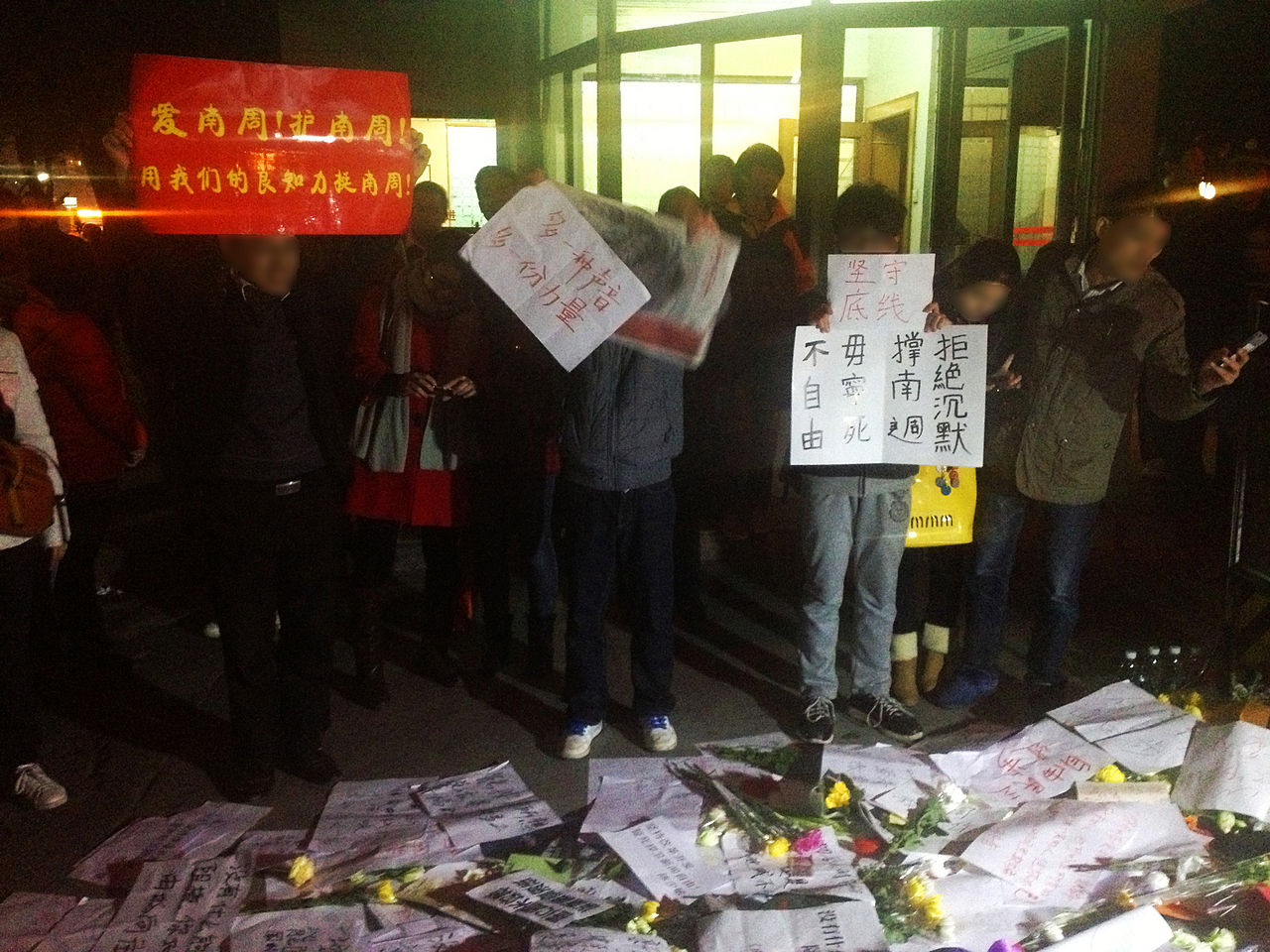
Protesters in front of the headquarters of Southern Newspaper Media Group in Guangzhou, January 2013 (Picture Credit: Bilonhw)
For many in the West, “independent Chinese journalism” sounds like an oxymoron. It’s no secret that Xi Jinping’s administration has tightened the strings of the state media marionette, gagging, censoring and imprisoning independent journalists with a zeal not seen since the 1989 Tiananmen Square crackdown. Reporters Without Borders places China 177th out of 180 countries in terms of press freedom, pointing out “the 100-plus journalists and bloggers now in prison.”
But it wasn’t always like this. In fact, a slew of recent historical studies, most notably by Charles Laughlin at the University of Minnesota, reveals a rich native tradition of Chinese investigative journalism, which despite Xi’s best efforts, still endures.
The late 19th and early 20th centuries saw the growing popularity of kaozheng xue (“evidential studies”), which encouraged a generation of writers to “write what they saw,” and Chinese newspapers and journals proliferated, long before their Western equivalents were widely circulated. There was even a great tradition of travel writing (youji), with proto-journalists traveling to remote parts of the country to describe social conditions and agitate for political change.
When the Qing Dynasty fell to the Xinhai Revolution in 1912, Chinese journalism was freed from most of its remaining institutional trammels, including its deference to Confucianism. Laughlin describes the period from 1912 to Mao Zedong’s ascendency in 1949 as a “golden age” of Chinese journalism, with student-run journals and politically-engaged writers’ groups like the “League of Left-Wing Writers” championing dissident voices. At the centre of the foment was Lu Xun. Born in 1881, Lu was perhaps the most important figure of 20th-century Chinese literature, and is best remembered for his lively picaresque novella The True Story of Ah Q, which charts the adventures of an uneducated peasant, inspired by years of reporting on the underclass of Shaoxing.
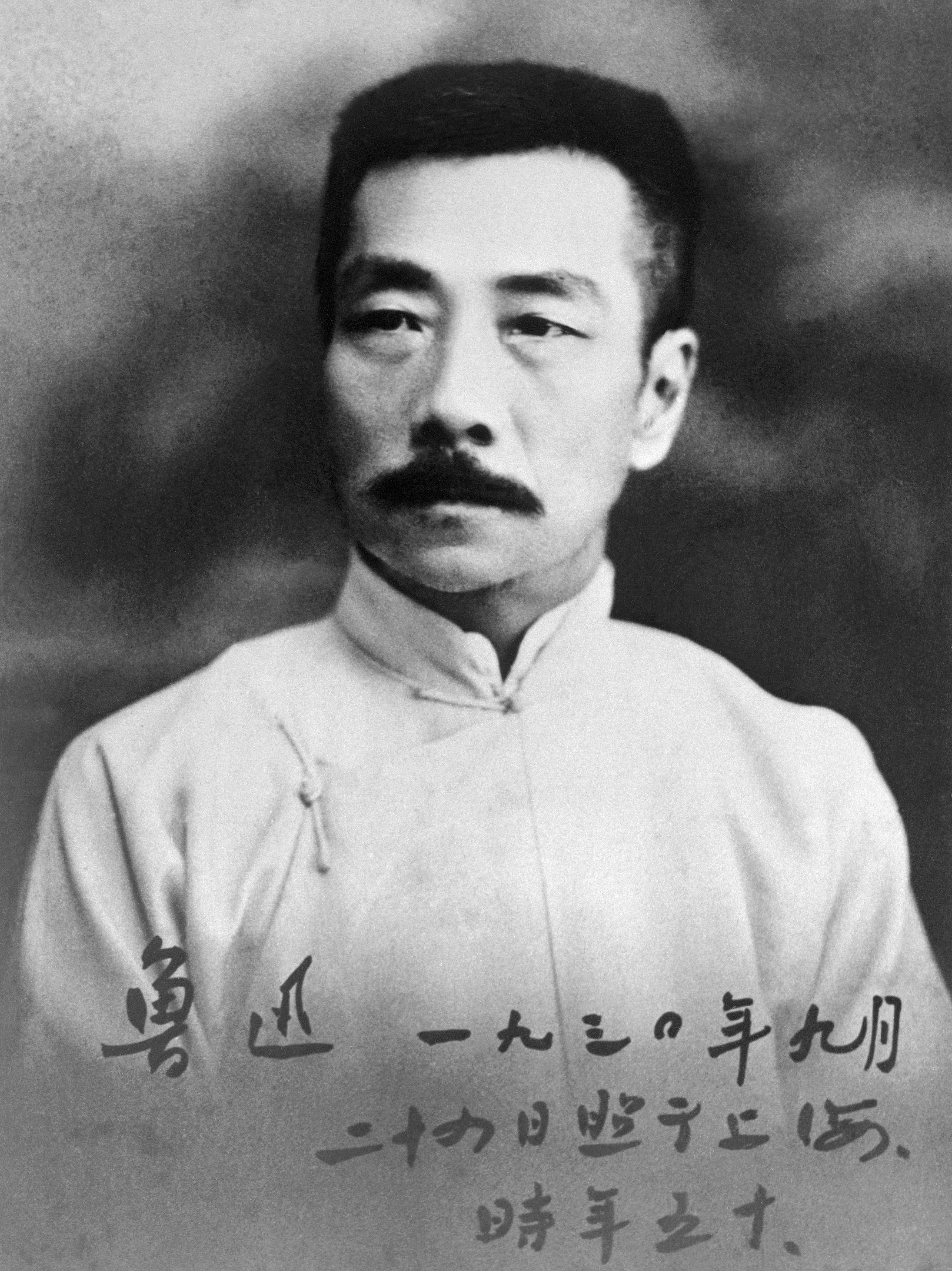
Lu Xun
What is less well appreciated about Lu, however, is his importance as a dissident journalist. After warlords captured Beijing in 1926, Lu became convinced of the need for political change. He stopped writing fiction altogether, and instead devoted himself to journalism, penning short, critical essays, or zawen, published in newspapers and student journals hostile to the Republic of China’s cooperation with the Japanese. By 1930, he helmed the League of Left-Wing Writers, and for a time was the figurehead for an important coalition between different dissident factions on the Chinese Left. Even later, when other League members ossified into the rigid Communists who would eventually propel Mao to power, Lu retained his journalistic independence. In 1934, he characterized his political stance as a hengzhan (“horizontal stand”) – a struggle not just against the cultural conservatism of Nationalist China, but against the blind millenarianism of the Communists.
After the Communists won the Chinese Civil War in 1949, they moved to strangle the free press. Lu, who died in 1936, was canonized by Mao as the “saint of modern China” – even as the very zawen he helped reinvigorate were suppressed. Thousands of journalists were imprisoned in the 1950s; in the 1960s, even staunch leftists like the writer Mao Dun, who had accepted a position as a Communist apparatchik, fell afoul of the Cultural Revolution and were jailed. Yet even at this nadir for journalistic freedom, some dissident voices did carry. Perhaps the most strident was that of Hu Feng. Hu was Lu Xun’s protégé and friend, and one of the few writers to continue the zawen tradition that Lu had helped to pioneer. Central to Hu’s oeuvre was On the Path of Realism, a theoretical defense of observational, empirical journalism in the face of the Marxist orthodoxies Lu Xun had begun to doubt. Despite Hu’s imprisonment in 1954, and despite what Professor Liu Kang of Duke University has called a “campaign of suppression” in contemporary Chinese academe, his classics endure in certain circles. Professor Liu is part of a small movement of diasporic Chinese academics seeking to rehabilitate Hu’s work – particularly the theoretical works, which Liu believes should be read as part of the same tradition as other dissident Marxists like György Lukács.
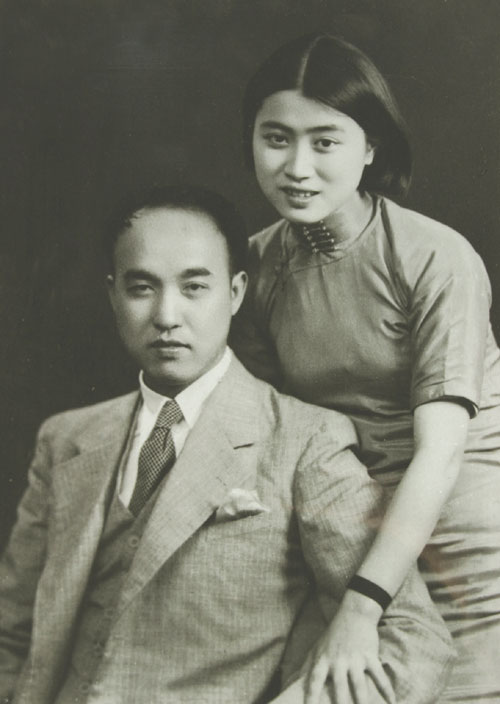
Hu Feng and his wife
After Mao’s death in 1976, Deng Xiaoping’s government saw not only economic reforms, but a remarkable liberalization of the press. The Communist Party’s flagship newspaper, the People’s Daily, hired a new editor-in-chief, Hu Jiwei, who broadened the paper’s scope, encouraged the public to air its opinions in a lively “letters” section, called for the Party to make journalists’ rights explicit, and encouraged a spryer, more engaging writing style a world away from the stale rhythms of Maoist cant. Many practitioners of this “new style” began to re-incorporate satire and irony – even lifting constructions directly from the work of Lu Xun and Hu Feng – and crucially, editorials began to revive the zawen.
Apart from the aftermath of the Tiananmen Square protests, this climate of liberal reform continued until 2007. Small, local publications flourished, and a raft of new radio stations (over 100 in Shanghai alone) aired all kinds of political opinions. Newspapers like People’s Daily even began to tolerate explicit dissent from contributors, albeit in a severely circumscribed form: dissent had to be “constructive,” and not designed to destabilize the existing regime. Forms of journalism that were suppressed after Tiananmen Square – notably the brand of historical reportage known as “Scar Literature,” pioneered by Lu Xinhua and comprised of eyewitness testimonies of the Cultural Revolution – were revived and tolerated after 2000.
In 2007, however, China’s 17th National Party Congress announced new restrictions on all sectors of the press; by October, 30 journalists had been arrested and a thousand online forums shut down. If this was the moment the tide began to turn, Xi Jinping’s accession to the Chinese premiership in 2013 was high water. The notorious “Document Number Nine,” circulated by the Communist Party’s General Office later that year, identified “media independence” as one of seven “dangerous Western values” that the new administration would seek to excise. The “constructive critics” tolerated under Deng and successors like Hu Jintao were hounded from major publications. Even radio phone-in content had to conform to strict guidelines.
The notorious “Document Number Nine” identified “media independence” as one of seven “dangerous Western values” that the new administration would seek to excise.
Even China’s erstwhile oases of press freedom – territories like Hong Kong and Macau – were ruthlessly brought to heel. Nobel Peace Laureate Liu Xiaobo, perhaps China’s most distinguished dissident voice since Tiananmen Square, attracted eulogies and panegyrics from all over the world when he died from liver cancer in 2017, whilst serving an 11-year jail sentence for “subversion.” Liu’s 2000 political book, A Nation that Lies to Conscience, is in much the same tradition as Hu’s On the Path of Realism: it constitutes a spirited defense of journalistic free conscience in the face of official mendacity and repression. In mainland China, of course, coverage of Liu’s death was almost non-existent; more surprising, however, was the way that even in Hong Kong, news of Liu’s death was pushed to the arid middle pages in many major publications. Despite efforts by pro-democracy factions in Hong Kong’s Legislative Council, the council’s president, Andrew Leung, quashed all attempts to discuss Liu’s life and work in the chamber.
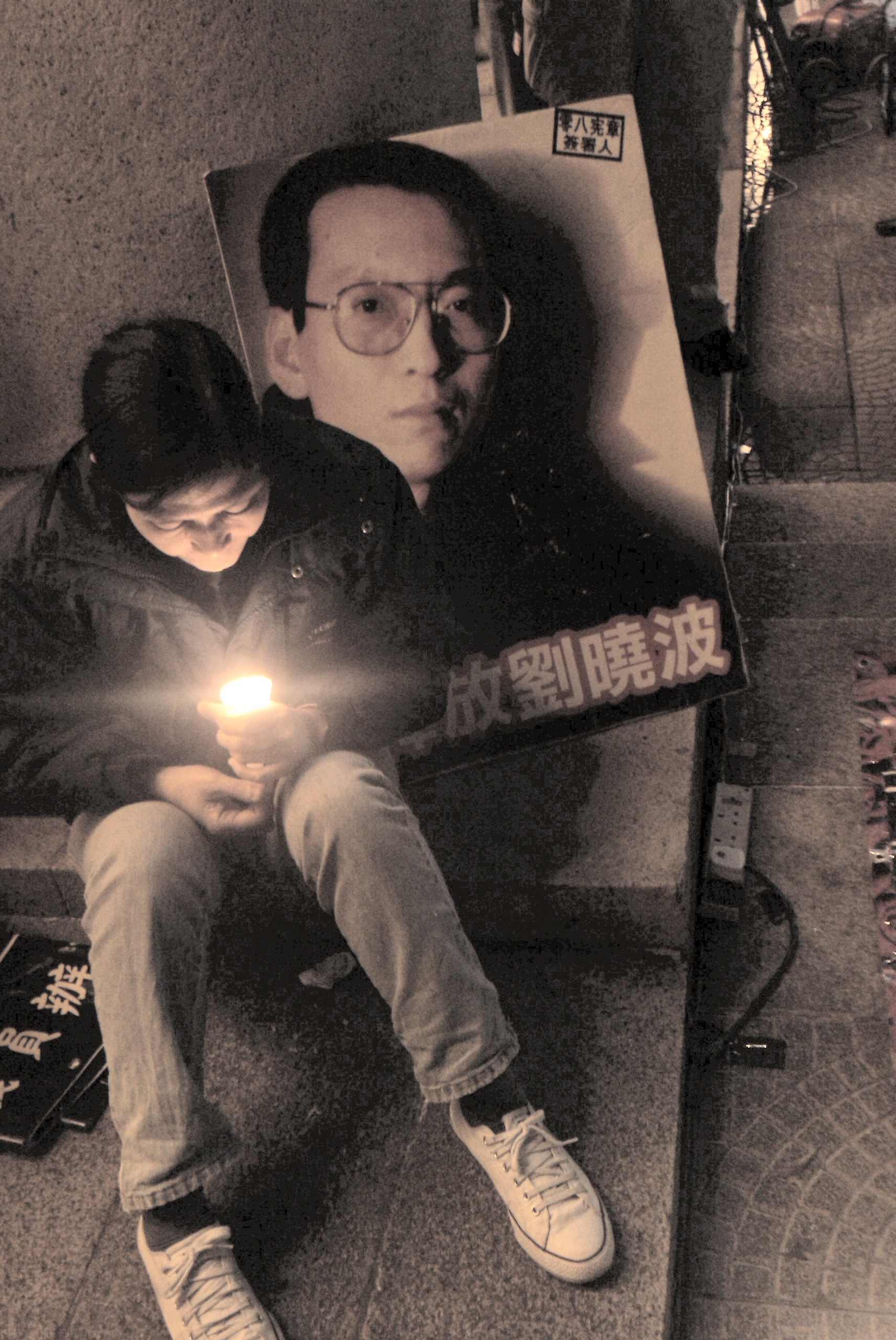
Chinese dissident with Liu Xiaobo poster (Picture Credit: r y _ _ _ _)
Yet even in the years since 2013, China has not completely lost sight of its journalistic pedigree. Several figures and organizations have flouted official restrictions, and paid the price. Perhaps the most striking example was Southern Weekly, a Guangzhou newspaper known for its independence. After official censors forbade the publication of a letter from President Barack Obama in 2009 remarking on the importance of the free press, Southern Weekly left two large blank spaces where the letter would have been published. (The correspondence with Obama was already seen as provocative, since US presidents had hitherto interacted only with CCTV and state-run print publications.) In January 2013, following an attempt by provincial propaganda authorities to replace the paper’s New Year editorial with a partisan screed, a group of Southern Weekly journalists staged a walkout, joined by members of the Guangzhou public.
Such a luminous example, however, belies a sobering reality. Amnesia is the pathology of the age, and Beijing knows it. Even if protests by outfits like Southern Weekly are not publicly crushed, other, more insidious measures ensure they cannot continue. The Southern Weekly standoff ended there, in what was proclaimed a small victory for independent journalism. Most of the staff involved in the walkout avoided punishment, and were allowed to return to work by Guangdong Communist Party chief Hu Chunhua, and in exchange, staff would stop calling for the dismissal of provincial propaganda chief Tuo Zhen. Yet, there is considerable evidence Southern Weekly has been tamed in ways that go beyond this small concession. Freedom House noted “weaker reporting or increased official jargon on the pages of the Southern Weekly,” while the public at large remains “unaware of the extent to which controls had tightened and censorship had grown more intrusive over the past year, particularly since Tuo Zhen’s appointment.”
Until this year, Beijing’s strategy of insidious, post hoc censorship was perhaps its most potent weapon against the free press. At times of great public anger, Beijing would appear to retreat, favoring diplomacy and tact, only to reassert its influence in the months to come, once the furore had died down. Even new media hasn’t been immune. Angus Grigg, of the Australian Financial Review, has charted the decline of China’s acerbic political bloggers. Once tolerated by authorities, Chinese political commentary has been waning since 2013. Grigg highlighted the case of Han Han: “For the last five or six years he was China’s most influential blogger,” he told the BBC. “He was a high school dropout with Korean pop star good looks. He really pulled no punches. He had a very sharp pen, and he would call the [Communist] Party out for its hypocrisy, and highlight environmental atrocities.” But just a few months after Xi’s accession, Han Han changed tack: “Gradually he started pulling back from writing on controversial subjects, he now focuses on putting up pictures of his Alaskan dogs. He sticks to very neutral subjects.”
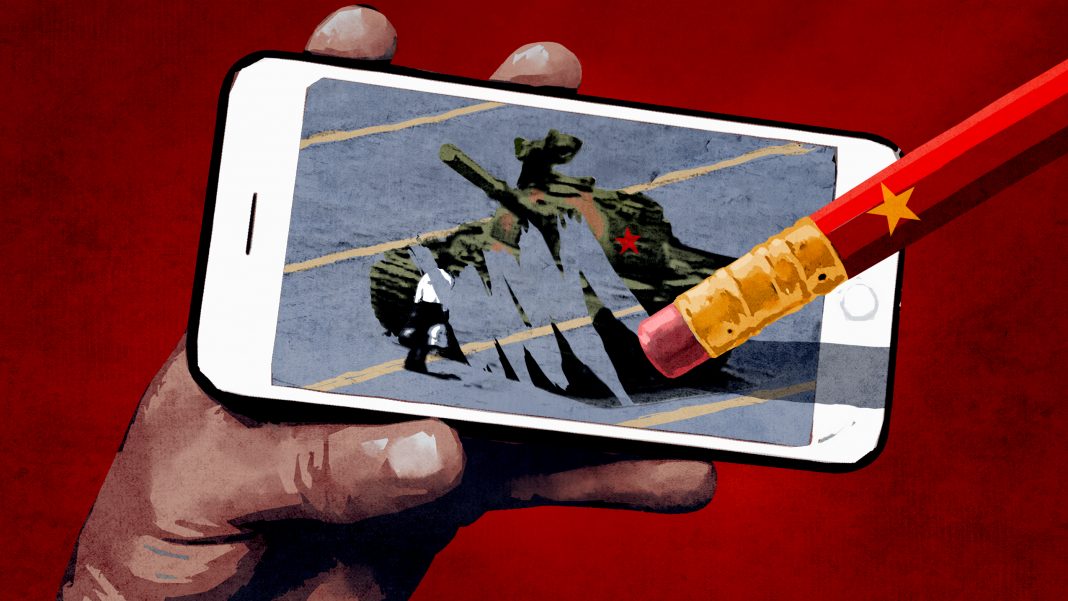
Grigg admitted that though state intervention is the most likely reason for Han Han’s new reticence, it’s hard to know for sure. But other cases are more clear-cut. Another iconoclastic blogger, Charles Xue, was arrested in August 2013 for soliciting a prostitute, and while in prison, appeared on CCTV giving long, elaborate confessions to having spread “social chaos.” The Beijing Municipal Public Security Bureau eventually released him on bail “because he was sick.” He has not published any politically provocative material since. This playbook – imprisonment followed by spurious “medical release,” apparently in return for silence – has been used on other dissident journalists. In 2019, one of China’s bravest and most impressive writers – Huang Xueqin, architect of China’s very own Me Too movement – was arrested for “picking quarrels and provoking trouble,” the Chinese Communist Party’s favorite charge against dissidents. Like Xue, Huang was quietly released (earlier this year), and like Xue, she has been conspicuously silent ever since. The lack of fanfare is crucial: dissidents like Xu and Huang were not allowed to become martyrs to the cause, but quietly neutralized into state-overseen “rehabilitation.”
But this year, things seem to be changing. The COVID-19 pandemic has not only intensified scrutiny of China on the world stage, but led to a blossoming of dissident material on the ground. It all began with Li Wenliang, the Wuhan doctor whose personal blog first brought COVID-19 to international attention. After Li’s death from COVID-19 in February, his example was taken up by a number of “citizen journalists,” committed to genuine reporting. The reports from Wuhan’s streets and hospital wards former lawyer Chen Qiushi shared on Twitter, for example, had gone global by the end of January. Chen was soon joined by local businessman turned citizen journalist Fang Bin, and 25-year-old Li Zehua. Li’s video of 26 February this year, precariously shot from a moving car, is the most shared video of the pandemic to date. “I’m on the road and someone, I don’t know, state security, has started chasing me,” he says in it. “I’m driving very fast. Help me.”
Li Zehua’s video
At the heart of this short journalistic renaissance was an interesting technical loophole. Despite China’s notorious “Great Firewall,” which keeps internet users in China within an online walled garden carefully pruned by the state, the new crop of journalists are all citizen journalists, and have managed to use technology to gain a global reach. Li Wenliang’s blog, which was picked up by the Italian newspaper La Stampa, may be considered an oversight by Beijing. But Chen Qiushi, Fang Bin, and Li Zehua all used VPN technology to skirt official proscriptions on international social media platforms. After Chen’s arrest, one of his friends, mixed-martial arts star Xu Xiaodong, posted a video on YouTube intimating that a “certain government department” has detained him in Qingdao, Shandong. Fang Bin also used VPNs to access YouTube, circulating a video of authorities piling corpses into a minivan in Wuhan in late January. And, on Twitter, Li Wenliang’s mother continues to demand answers regarding why her son was harassed by the Wuhan police for sounding the alarm on the coronavirus.
Despite China’s notorious “Great Firewall,” the new crop of journalists are all citizen journalists, and have managed to use technology to gain a global reach.
Li Wenliang died in February this year. Chen Qiushi, Fang Bin, and Li Zehua all disappeared in the same month. Crucially, though, before they vanished, their videos, blog posts, and testimonies were shared by millions across the world. And these voices have begun to form a chorus. They are joined by writers like Fang Fang, the darling of locked-down Wuhan, whose Wuhan Diary (“Dear internet censors, you should let Wuhan people speak.”) was published as a hardback by Harper Collins this June. In 2010, Fang actually won China’s coveted Lu Xun Literary Prize – but in truth, this new wave of “citizen journalism” surpasses anything that Lu Xun, or for that matter Mao Dun or Hu Feng, ever achieved. For the first time, local Chinese journalism is going global. It is this “internationalization” of Chinese dissident voices that constitutes the country’s great hope. Once these voices have reached the international community, no amount of skulduggery from Beijing can silence them.
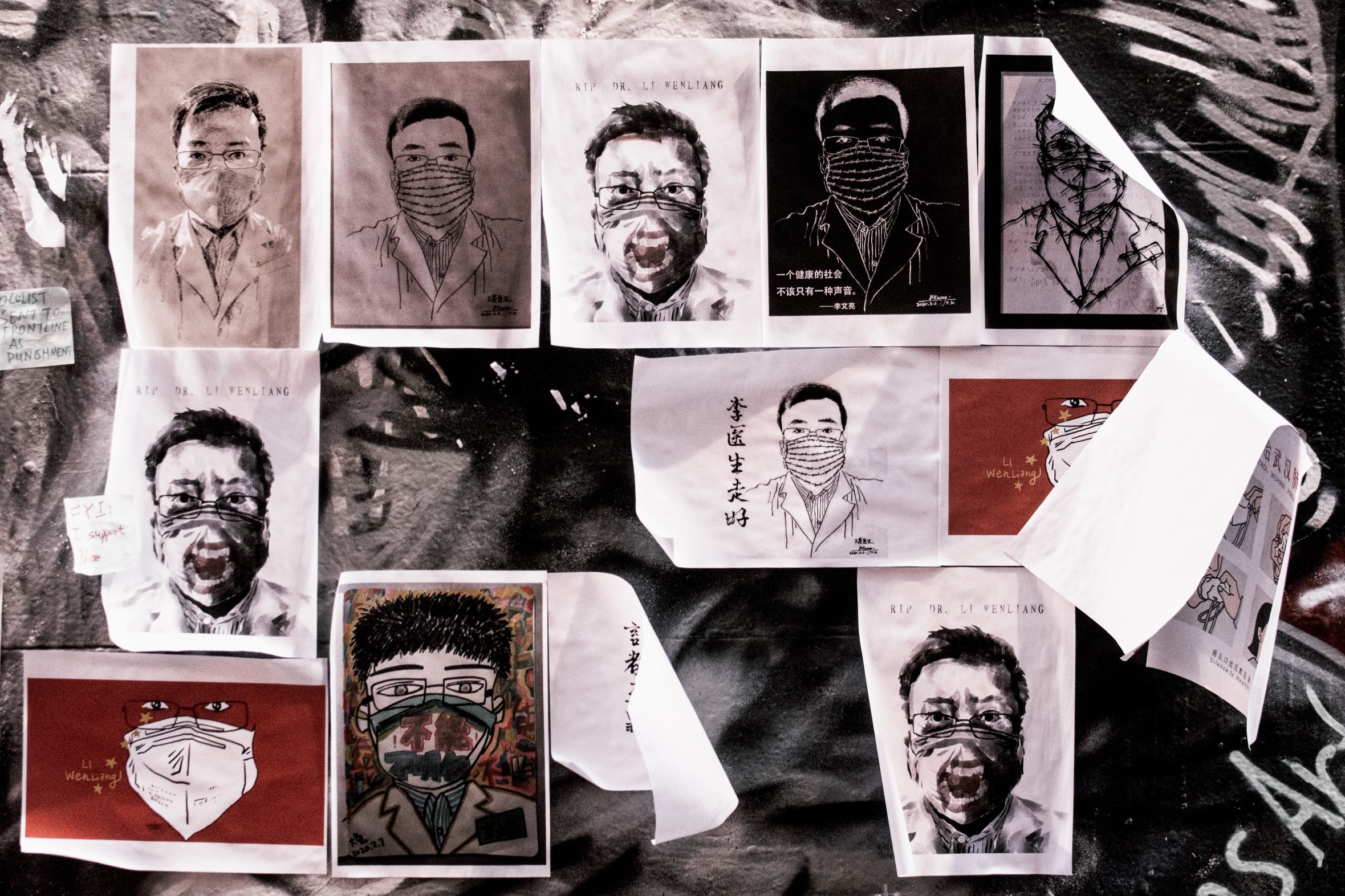
Posters of Li Wenliang
The fates of Southern Weekly, Han Han, Charles Xue, and Huang Xueqin foreshadow what Beijing is likely to do next. The disappearances of the whistle-blowers have already begun; stand by for the “rehabilitations,” the slow lapse of China’s gadflies into the inoffensive and the bland. This April, Li Zehua released a video claiming a change of heart. The authorities had treated him well, he said, and he has seen the error of his ways. At the end of his post, he quoted the Book of Documents, one of the Confucian classics that the Qing practitioners of kaozheng xue did so much to challenge:
The mind of man is restless, prone (to err); its affinity to what is right is small. Be discriminating, be uniform.
Compare this to Li in February:
I don’t want to remain silent, or shut my eyes and ears. It’s not that I can’t have a nice life, with a wife and kids. I can. I’m doing this because I hope more young people can, like me, stand up.
It’s up to us which Li Zehua we wish to believe.
